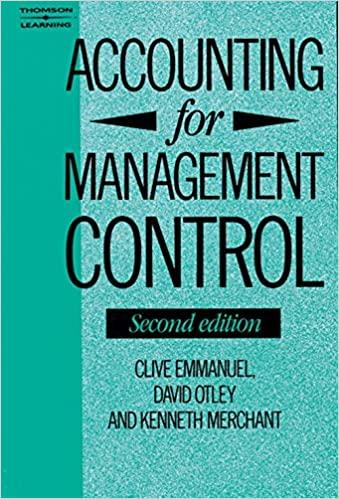Question
As a CBA analyst for the states Department of Parks and Recreation, you are interested in estimating the annual benefit of a project that would
As a CBA analyst for the states Department of Parks and Recreation, you are interested in estimating the annual benefit of a project that would make the tram accessible to people in wheelchairs. In addition to the time savings that would be provided by the tram, you also know that: (i) 600 people in wheelchairs visited the park last year; (ii) the demand curve for overlook visits by people in wheelchairs is linear and has a price elasticity of demand equal to 0.8; and (iii) people in wheelchairs value their recreational time at $10 per hour.
-
Calculate the time cost for a person in a wheelchair to reach the overlook and return to the parks main parking lot with and without the tram project (Hint: Your answers should be expressed in dollar units).
-
Calculate the change in the number of visits to the park by people in wheelchairs .
-
Calculate the annual change in consumer surplus associated with making the tram accessible to people in wheelchairs ().
The formuals we were given in class were the ss=cs+ps or a chnage in social surplus=a chnage in cosumber surplus + a chnage in pie + a change in Fs
ss=cs+ps+gs
change in ss= a chnage in cs+ a change in Ps + a chnage in GS
B=change in CS c=-chnageGS change in SS=NSB=B-C
NSB=B-C= change in CS - construction costs - operating expense
MCPF=1+METB
2. Suppose that the market for bubble gum is competitive. The current equilibrium price for a stick of bubble gum is $2, and at that price, the quantity demanded is 1,500 sticks of bubble gum. You also know that the price elasticity of demand for bubble gum at that price and quantity is 0.3.
-
Estimate the demand function for bubble gum, assuming a linear relationship between price and quantity.
-
Estimate the demand function for bubble gum, assuming a constant elasticity relationship between price and quantity.
-
Now, suppose that the local government is annoyed by the litter generated from chewed bubble gum and bubble gum wrappers, so they impose a tax on bubble gum that raises its price by $0.50.
-
Estimate the new quantity of bubble gum demanded using your estimated linear demand curve.
-
Estimate the new quantity of bubble gum demanded using your estimated constant elasticity demand curve.
-
Estimate the change in consumer surplus associated with the tax using your estimated linear demand curve.
-
Estimate the change in consumer surplus associated with the tax using your estimated constant elasticity demand curve.
-
Step by Step Solution
There are 3 Steps involved in it
Step: 1

Get Instant Access to Expert-Tailored Solutions
See step-by-step solutions with expert insights and AI powered tools for academic success
Step: 2

Step: 3

Ace Your Homework with AI
Get the answers you need in no time with our AI-driven, step-by-step assistance
Get Started


